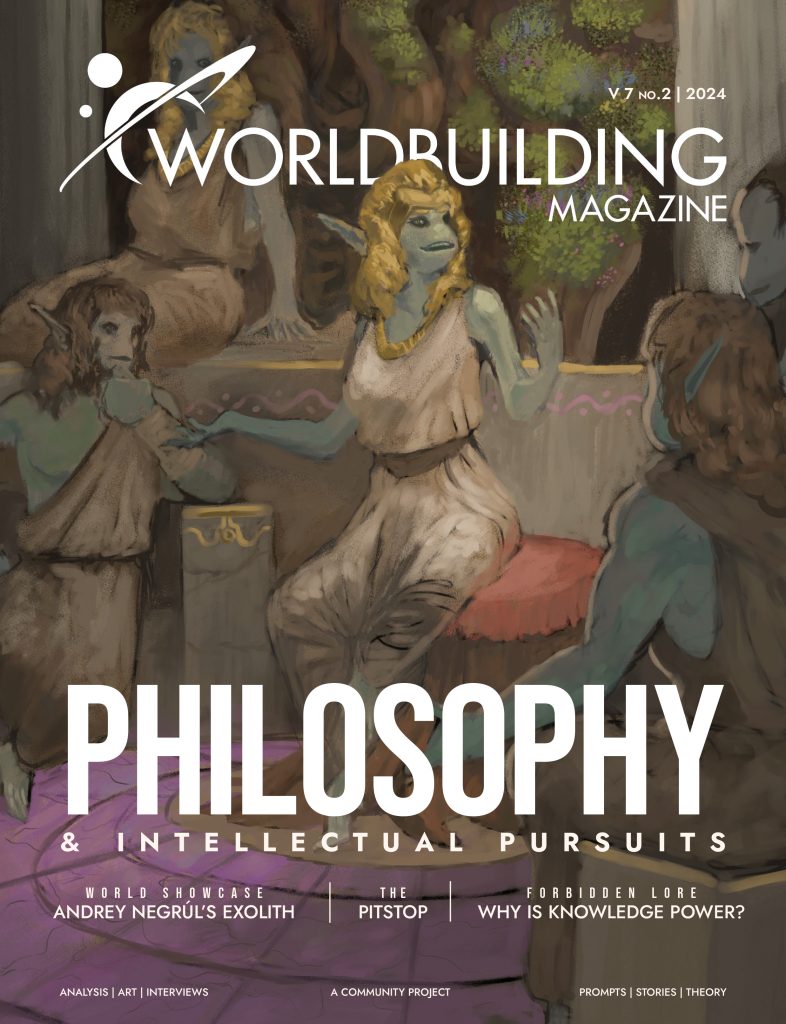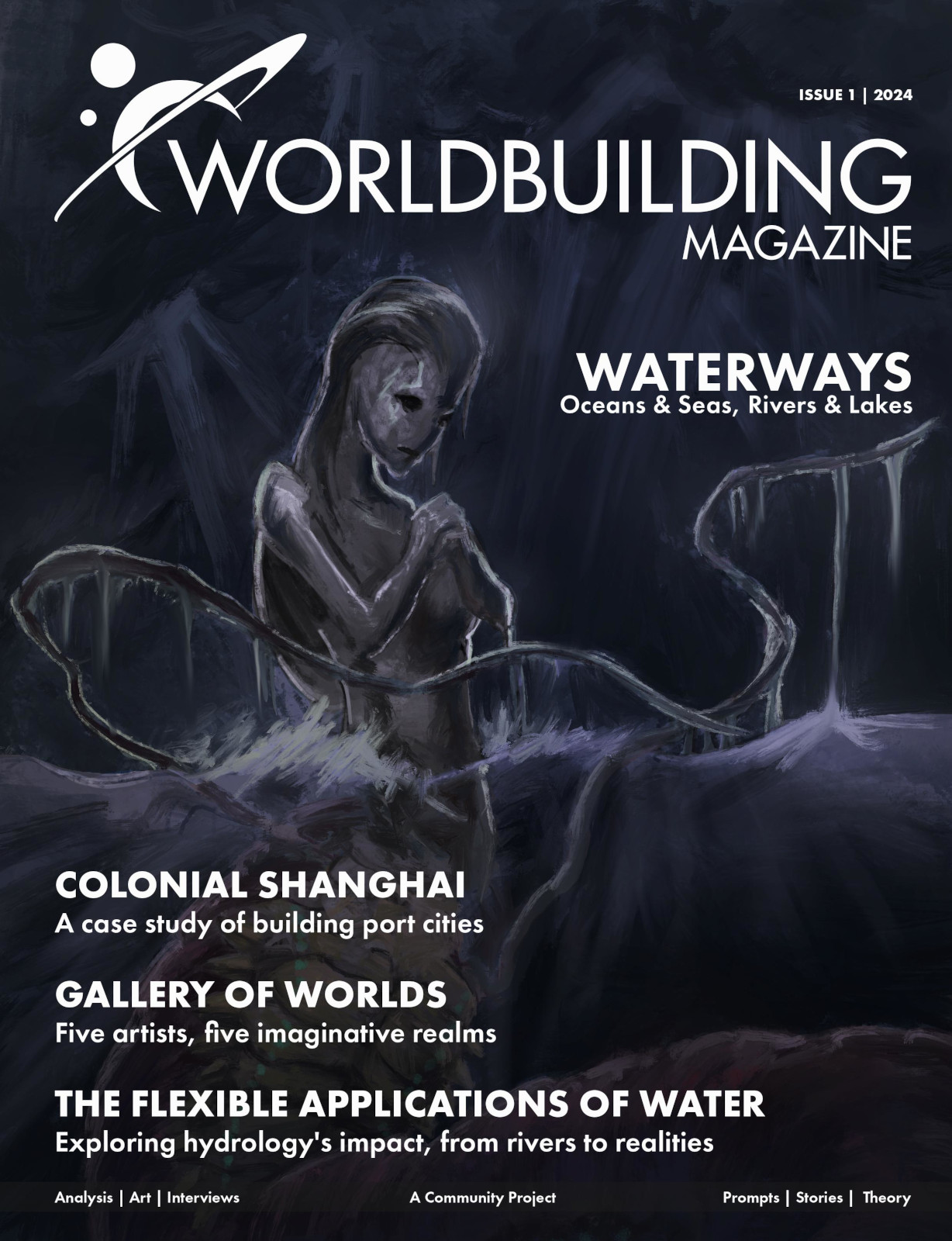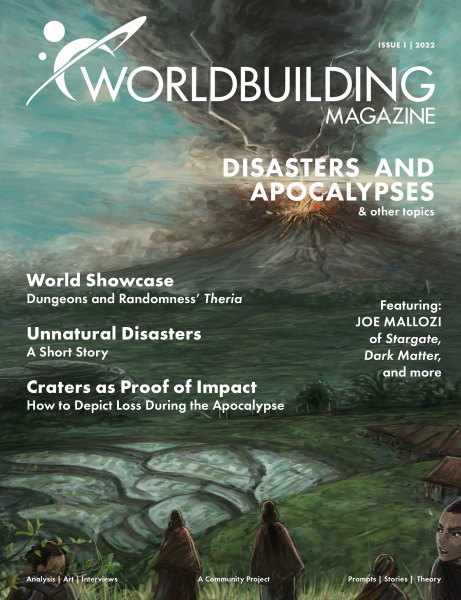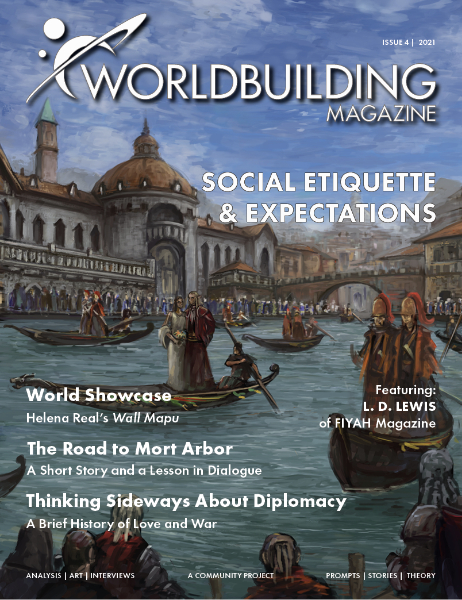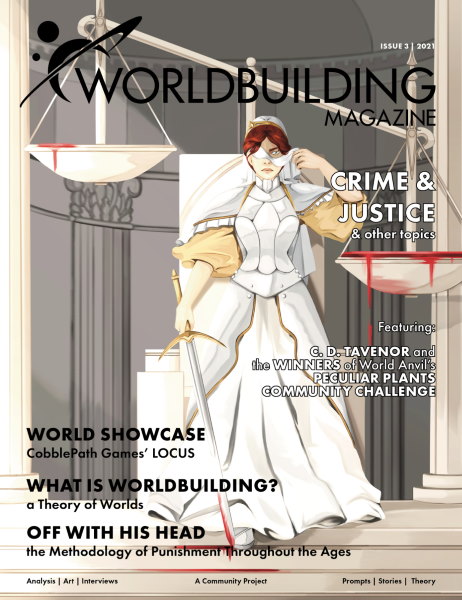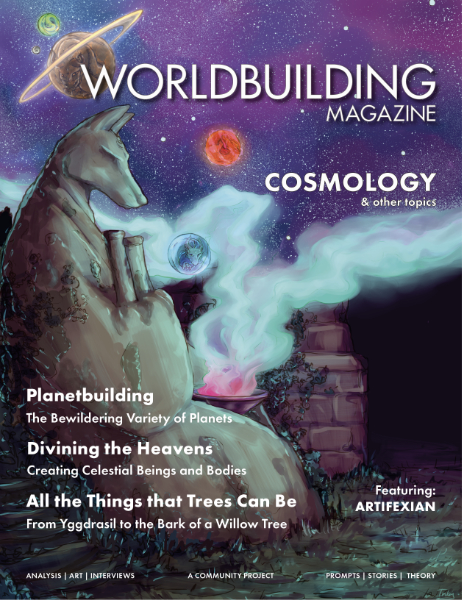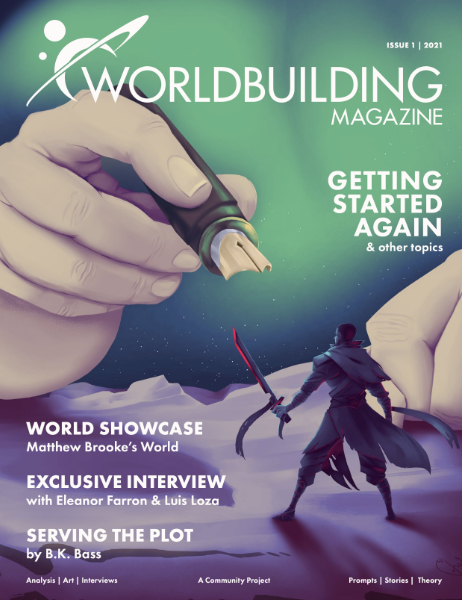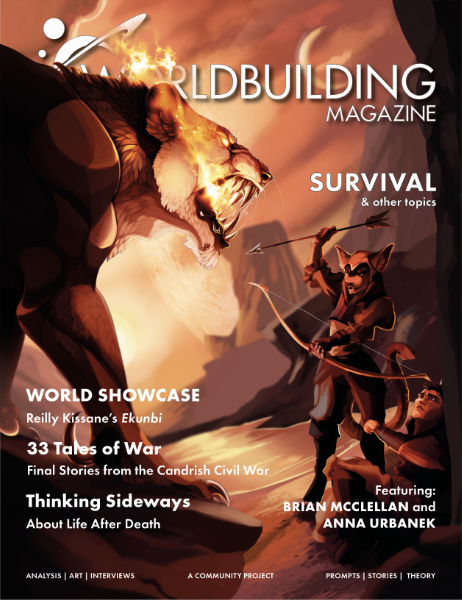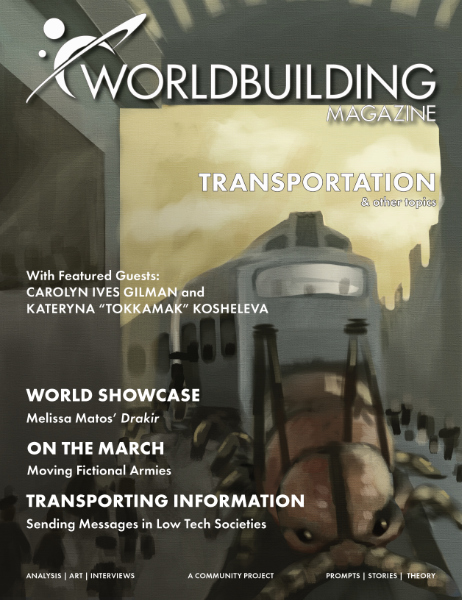We are back with a new issue of Worldbuilding Magazine. Our lovely volunteer Bruce A Whitesides has revamped the magazine with a fresh style! We hope you’ll enjoy it. You may also notice that we’ve included content warnings for our stories, some of which are a little more explicit than we’ve previously released. Explore philosophical
V7 no.2 Philosophy & Intellectual Pursuits
